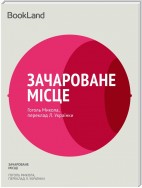Nikolai Gogol

Nikolai Vasilievich Gogol (31 March 1809 – 4 March 1852) was a Ukrainian-born Russian dramatist, novelist and short story writer. Considered by his contemporaries one of the preeminent figures of the natural school of Russian literary realism, later critics have found in Gogol's work a fundamentally romantic sensibility, with strains of Surrealism and the grotesque ("The Nose", "Viy", "The Overcoat," "Nevsky Prospekt"). His early works, such as Evenings on a Farm Near Dikanka, were influenced by his Ukrainian upbringing, Ukrainian culture and folklore. His later writing satirised political corruption in the Russian Empire (The Government Inspector, Dead Souls), leading to his eventual exile. The novel Taras Bulba (1835) and the play Marriage (1842), along with the short stories "Diary of a Madman", "The Tale of How Ivan Ivanovich Quarreled with Ivan Nikiforovich", "The Portrait" and "The Carriage", round out the tally of his best-known works. Gogol was born in the Ukrainian Cossack village of Sorochyntsi, in Poltava Governorate of the Russian Empire, present-day Ukraine. His mother was a descendant of Polish landowners. His father Vasily Gogol-Yanovsky, a descendant of Ukrainian Cossacks. In 1820 Gogol went to a school of higher art in Nizhyn and remained there until 1828. In 1828, on leaving school, Gogol came to St Petersburg. In 1831, he brought out the first volume of his Ukrainian stories (Evenings on a Farm Near Dikanka), which met with immediate success. He followed it in 1832 with a second volume, and in 1835 by two volumes of stories entitled Mirgorod, as well as by two volumes of miscellaneous prose entitled Arabesques. In 1834 Gogol was made Professor of Medieval History at the University of St. Petersburg. In 1841 the first part of Dead Souls was ready, and Gogol took it to Russia to supervise its printing. It appeared in Moscow in 1842, under the title, imposed by the censorship, of The Adventures of Chichikov.
 čeština
čeština Deutsch
Deutsch français
français magyar
magyar polski
polski русский
русский English
English Azərbaycan
Azərbaycan беларуская
беларуская italiano
italiano ქართული
ქართული қазақ
қазақ Nederlands
Nederlands português
português slovenčina
slovenčina español
español 中文
中文 українська
українська










